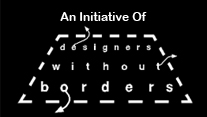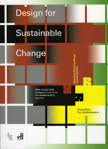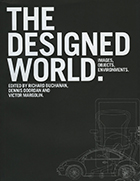Victor Margolin

In some parts of the world, taking a taxi or catching a cab is a simple matter. You simply hail a cab on the street, get in, arrive at your destination, and pay the fare indicated on the meter. The transaction is straightforward and free of deception. In Britain, for example, taxi drivers are known to have undergone rigorous training to learn the ins and outs of the various city layouts and can generally be relied on to get you to your destination by the most efficient route without overcharging you for the ride.
The British example and those of other countries where public services are tightly regulated and penalties administered for violations of rules do not, however, represent the norm for taxi service. In many places, the risks of taking a taxi range from getting mugged to being grossly overcharged. In numerous countries hotel guests are strongly advised not to hail taxis on the street but rather to allow the hotel to call a cab for them. In Mexico, taxis are designated in one of two classes – those that a person hails on the street, which are deemed untrustworthy, and those called by hotel bellmen, which are considered reliable. The latter even have their special designation marked on the cab itself. But even that advice of hotel bellmen is not to be relied on.
In two countries where I have traveled, Mexico and Poland, the bellmen in international hotels, responded to my request for a taxi by hailing their own expensive hotel cars, which charged at least double the price of a regular taxi. Travelers who take taxis to get around must be wise to the various ruses that cab drivers employ. The most obvious one is not to turn the meter on and then demand a fee of their choosing when you reach your destination. I became aware of this tactic years ago and now always ask the driver to start the meter when I am traveling abroad. However, I was recently outfoxed by a cabdriver in Santiago, Chile. I hailed the cab in a rather nice middle-class section of the city. The driver was an agreeable older man who looked like he could have been someone’s kindly uncle. As soon as I entered the cab, he turned the meter on. I was shocked to see that it started at the equivalent of twenty dollars. Rather than exit the cab, which I should have done, I asked the driver why the starting price was so high. He told me with a straight face that the tariff in the zone where he picked me up was exceptional for that zone. Since I believed – I now see naively – that the starting price on the meter was fixed, I did not question him even though I thought the price was outrageous. Consequently, I remained in the cab, believing that it would be the same for any other taxi. By the time we reached my destination, about fifteen minutes away, the fare had mounted by only two dollars or so. Again, I was suspicious but did not learn until it was too late that I had, in the double sense, been taken for a ride. It was an expensive lesson but I now know enough to question the starting meter price if it seems excessive.
In many countries, the drivers are less duplicitous. They will offer you a choice of a metered or unmetered ride. If you have a sense of what the going price to a particular destination is, you can bargain with the driver, agree on a price and then hop in the cab without concern that you will be taken on a circuitous route that will run up the final price. Bargaining tactics will vary from one country to another. Drivers in some cities will try to beat you down more than in others. In Tel Aviv, I dreaded taking cabs because I knew I would always have to engage in an intense exchange with a driver who would first of all try to talk me out of using the meter and then offer me a price that was far higher than I knew the going rate to be. I remember one particularly heated argument with a driver simply because I told him that I wanted him to turn the meter on.
The worst that can happen is that you will be robbed or mugged. Shortly after the Soviet Union collapsed, Russia was notorious for its rogue cab drivers that would take unsuspecting travelers to remote destinations, rob them, and then leave them to fend for themselves. Mexico too is famous for such muggings. There is a particular type of cab in Mexico City, an old two-door Volkswagen Beetle whose front seat has been removed, ostensibly to make it easier for passengers to get into the back seat. In truth, it is also easier for robbers to enter the cab. Drivers work in cahoots with teams of muggers whom they pick up at designated locations after they have taken on a passenger. Some years ago I got into such a cab, unaware of the scam. En route to my hotel, the driver was telling me how much he enjoyed his visits to Las Vegas. Just as I was wondering how a Mexico City cab driver could afford such trips, I found myself flanked by two thugs, one of whom was gently pressing a knife blade against my ribs. In Spanish, they told me to close my eyes and they then proceeded to frisk me, almost as thoroughly as TSA agents now do at American airports. They found some cash and my wedding ring but fortunately no credit card.
I heard that folks with credit cards were driven to cash stations where they were made to extract as much money as the card allowed. When one of the thugs returned my glasses after the frisking, I began to sense that they were not going to do me in. In fact, they dropped me in some remote part of the city and quickly sped away. The only option for getting back to my hotel, unfortunately, was to hail another cab, which delivered me safely to my destination as I was trying to cope with the shock of having been mugged and threatened with a knife. Getting overcharged by a few bucks is nothing compared to having your life threatened but what is unfortunate about all these taxi incidents is that they breed mistrust and force one to be wary not only of cab drivers but of various other merchants and service providers with whom one comes into contact.
There is something comforting about visiting a foreign city and feeling that you can trust the cab drivers, while it is conversely disconcerting to discover that drivers in so many parts of the world have no compunction about treating their prospective or actual passengers as marks to be either cheated or even physically harmed. Ethics that imply treating everyone fairly don’t apply in many places and regarding visitors as ripe for duplicitous dealings seems natural. One has to be grateful for honest cabbies wherever they may be found and hope that drivers will prefer to profit from a generous tip rather than an inflated fare or even a physical assault.
Victor Margolin, Professor Emeritus of Design History in the Department of Art History of the University of Illinois at Chicago and a founding editor of DesignIssues, is a regular contributor to Design-Altruism-Project.











Leave a Reply
You must be logged in to post a comment.